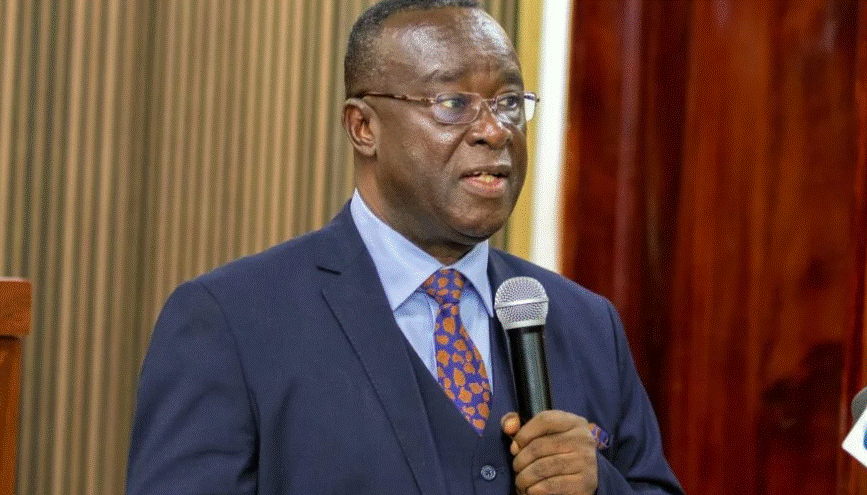
By Nnamdi O. MADICHIE
The title says it all. “Soccer.” Really? Why should the United States continue to insist on calling the world’s most beloved game something different from what nearly every other country on the planet calls it – football?
After all, the sport is played with your feet, not your hands. You kick the ball, not pick it up. The logic is right there in the name. Yet, for reasons rooted in history, culture and maybe a bit of American stubbornness, the US continues to stand apart on this one.
As African teams slug it out for a place at the cathedral of football – this may well be an opportune time to call for a realignment of the sport – yes, football.

FIFA | The Home of Football – the acronym FIFA stands for Fédération Internationale de Football Association, a French name that translates to International Federation of Association Football. It is the international governing body for the sport of football and is responsible for organising major tournaments, including the World Cup.
A game the world calls football
Across Europe, Africa, South America and Asia, “football” is more than just a sport – it’s a shared language. When someone in Brazil says futebol, in Spain fútbol, in France football or in Nigeria futbolu, everyone knows exactly what game they’re talking about. It’s the same game that draws billions of eyes every four years during the FIFA World Cup, where legends are made and nations come alive.
But mention “football” in the United States, and you’re talking about something entirely different: a game that involves helmets, pads, touchdowns and hands. The sport that Americans – and only Americans – call “football” has very little to do with the act of kicking a ball. It’s a cultural staple in the US; yes, but it has completely overshadowed what the rest of the world sees as the “real” football.
The naming irony
Ironically, the word “soccer” didn’t even originate in the United States. It came from England—the very birthplace of modern football. In the late 19th century, when different codes of football were developing, British university students nicknamed Association Football (as defined by the Football Association) “assoc,” which eventually morphed into “soccer.”
Meanwhile, “rugby football” was shortened to “rugger.” So technically, the Brits invented the term “soccer.” But while they quickly abandoned it in favour of “football,” Americans clung to it. By the time American football became the country’s dominant contact sport, the word “football” was already claimed, leaving “soccer” as the outsider term.
Fast forward to today, and the rest of the world collectively shakes its head. The United States has built an entire sports culture that seems to operate on its own axis—miles away from the global norm. Whether it’s using inches instead of centimetres, Fahrenheit instead of Celsius, or “soccer” instead of “football,” America often chooses its own path. But in the case of football, this linguistic divide feels especially jarring—because the sport itself is now undeniably global.
The global game, built outside the US
Here’s where the irony deepens: even though the 2025 FIFA Club World Cup was hosted in the United States, the actual ball used in the tournament has no real American DNA. The official match ball is made by Adidas, a German company with a proud European heritage. Adidas has been FIFA’s official supplier for decades, crafting every iconic World Cup and Club World Cup ball we’ve seen.
For the 2025 tournament, Adidas unveiled a new design in January 2025, celebrating the host nation with pearlescent tones, jagged block shapes and deconstructed stars and stripes. It’s a nod to the US—but the ball itself? It’s made halfway across the world.
As SoccerBible reported, the ball incorporates Adidas’ cutting-edge PRECISIONSHELL technology, designed for improved accuracy and performance. But while the design honours the host, the craftsmanship tells a global story. According to Sportstar (The Hindu), Adidas manufactures its footballs primarily in Sialkot, Pakistan, a city that produces around 70 percent of the world’s footballs.
That’s right – the “official” ball of the tournament hosted in the US will likely be stitched together in a small industrial town in Pakistan, where generations of artisans have perfected their craft. Some footballs, particularly replicas, are also produced in China and Indonesia under Adidas subcontractors. Forward Sports, a Pakistani company, has long partnered with Adidas to produce match balls like Al Rihla, used in the 2022 World Cup. In other words, the world’s “football” literally comes from everywhere but America.
A cultural disconnect
This global production chain illustrates something profound: football (yes, football) is a global institution built on cooperation, craft and shared identity. It’s not just about the players on the pitch – it’s about the interconnected world that supports it. When Americans call it “soccer,” it feels almost like a refusal to join that global conversation.
Sure, the word itself isn’t harmful, but it creates a small linguistic barrier between the US and the rest of the world. And for a sport that thrives on unity, that barrier matters. Imagine a young fan from Nigeria, Argentina or Japan talking to their American friend about football. The conversation immediately derails: “Wait, do you mean soccer or football?” It’s a small but constant reminder that while football unites billions, the US still stands linguistically apart.
A time to realign
As the United States prepares to host major football event— the FIFA World Cup in 2026 – it might be time for a cultural reset. These tournaments will bring global football culture directly to America’s doorstep. Fans from every continent will pour into American stadiums wearing scarves, waving flags and chanting songs that echo “football” pride.
This moment presents a chance for the US to realign with the rest of the world – not just in naming, but in spirit. The sport is no longer a foreign novelty in America — it’s growing fast. Major League Soccer (MLS) teams now attract international talent and youth participation continues to rise. The US Women’s National Team is a global powerhouse, commanding respect across continents.
So maybe, just maybe, it’s time to drop the “soccer” label and embrace the name the rest of the world already loves — football. It’s not about semantics — it’s about belonging to something bigger than national borders.
It’s more than just a word
Words shape how we see the world. When Americans call it “soccer,” it keeps the sport at arm’s length, as if it’s still foreign. But when you say “football,” you’re part of a shared global heartbeat. You’re speaking the same language as billions of fans who live and breathe the beautiful game. Sure, change won’t happen overnight.
“Soccer” is deeply ingrained in American culture, and many will argue that the distinction is harmless. But there’s something poetic about the idea of America – one of the world’s most influential nations – finally aligning with the rest of the globe on this one. Because the truth is, whether you’re in London, Lagos, Lahore or Los Angeles, when the whistle blows and that Adidas ball starts rolling, the game is the same. Eleven players. Ninety minutes. One goal.
And that, my friends, is football.
>>>the writer is a Research Fellow at the Bloomsbury Institute London in the United Kingdom. He is also Full professor of Marketing at the School of Business, Woxsen University Hyderabad, India. He has published extensively on the subject of football, including having been part of the expert panel on football in “Focused Discussions, Regional Studies Sports, Society, and the State in the Middle East Working Group,” under the auspices of the Centre for International and Regional Studies, Georgetown University Qatar.
The post It sucks when you call football soccer: Time to realign with the rest of the world appeared first on The Business & Financial Times.
Read Full Story


















Facebook
Twitter
Pinterest
Instagram
Google+
YouTube
LinkedIn
RSS